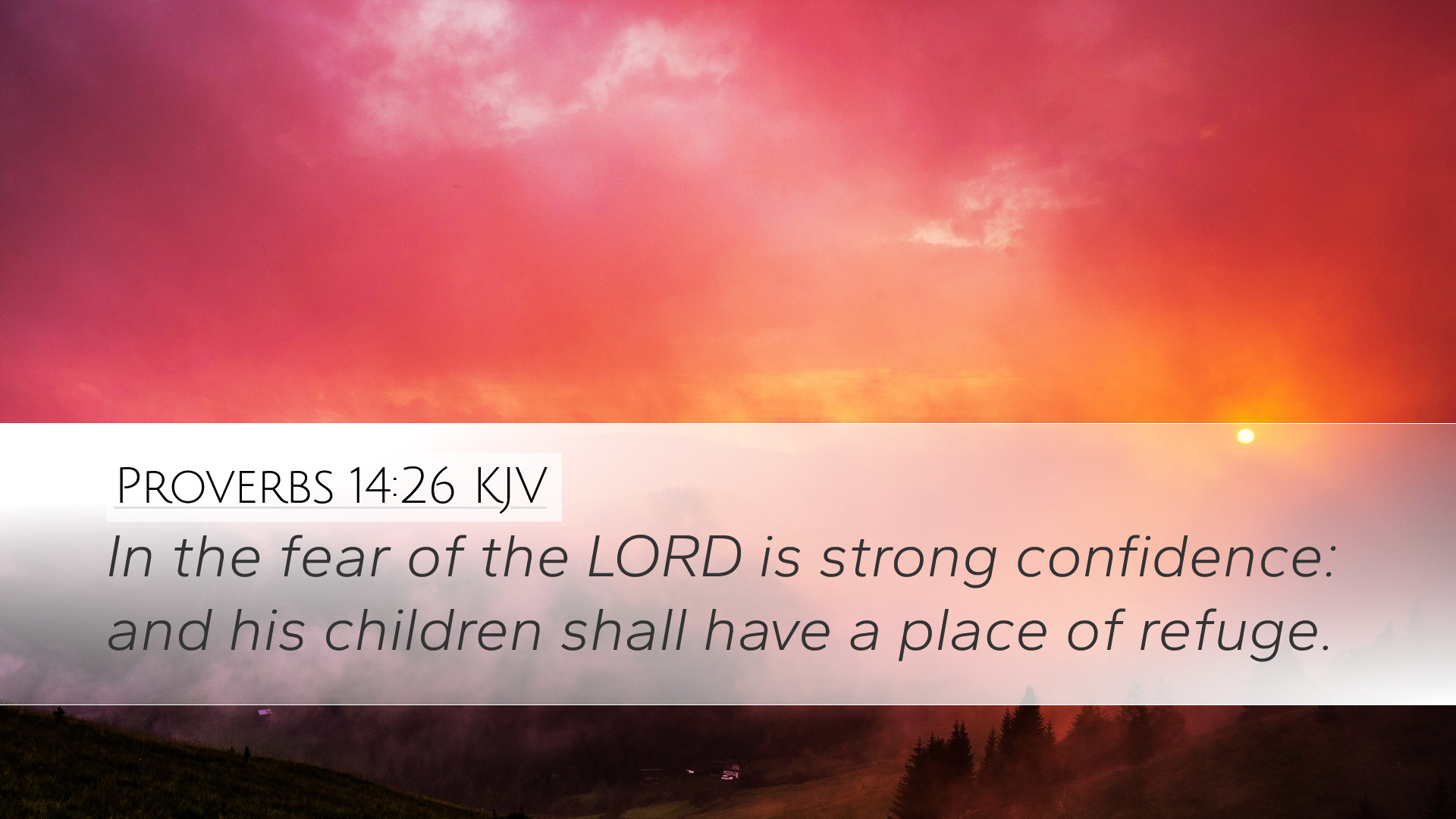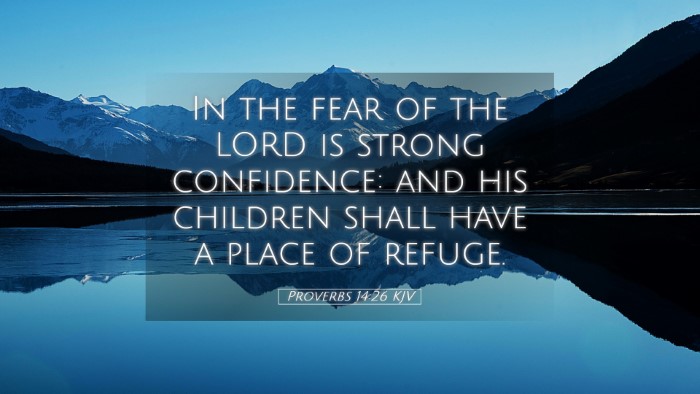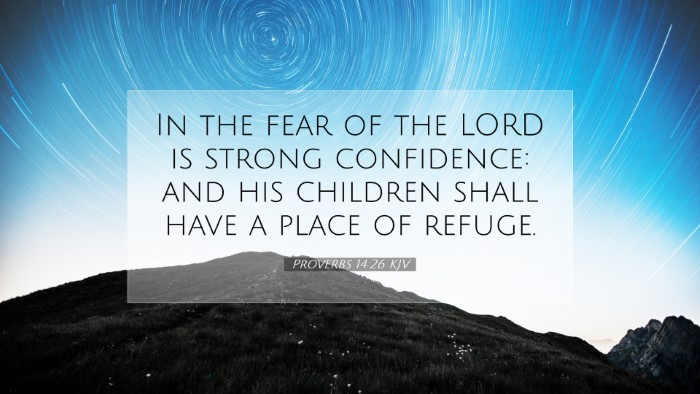Commentary on Proverbs 14:26
Bible Verse: "In the fear of the LORD is strong confidence: and his children shall have a place of refuge." (Proverbs 14:26, KJV)
Meaning of the Verse
This verse articulates a profound principle regarding the relationship between the fear of the Lord and the security it provides. Fear, in this context, refers to a reverent awe and respect for God, which leads to confidence and assurance of safety. Notably, this confidence is not merely psychological but is rooted in a deep spiritual understanding of God's nature.
Insights from Commentators
Matthew Henry
Matthew Henry emphasizes the dual nature of fear and confidence. He reflects that those who truly respect God will find a sturdy foundation for their confidence. He states that the fear of the Lord brings not only confidence but also a sense of stability and hope. His commentary notes that this fear leads to a protective influence over one's children, suggesting that the faith of parents can create a refuge for their families.
Albert Barnes
Albert Barnes elaborates on the implications of 'strong confidence' by defining it as assurance in God's character and promises. He remarks that this confidence is not fleeting, but rather a steadfast certainty about God's providential care. Barnes also points out that the children of the faithful not only inherit this confidence but are also beneficiaries of a divine refuge, underscoring the covenantal aspect of God's protection throughout generations.
Adam Clarke
Adam Clarke provides a detailed exposition, noting that the fear of God is the foundation of all wisdom. He asserts that the 'place of refuge' signifies a shelter that is both physical and spiritual, where children will experience God’s protection and providence. Clarke underscores the importance of cultivating this fear of God in private and public life, suggesting that it should be reflected in daily living and moral choices.
Theological Implications
The theological implications of this verse are profound for understanding God's nature and human response. It suggests that true confidence comes through recognizing God's holiness and power. This reverence becomes the wellspring of a secure and stable life, providing assurance that God is a refuge in times of trouble.
Furthermore, the verse carries an intergenerational message about faith. The idea that children of those who fear the Lord shall have a place of refuge indicates that faith and its resultant security can be imparted through family and community, reinforcing the communal aspects of faith and reliance on God.
Practical Applications
-
For Pastors:
Pastors can use this verse to encourage their congregations to cultivate a healthy fear of the Lord. Sermons can focus on the benefits that arise from such reverence and how it can lead to a confident life marked by God's protection.
-
For Students:
Students studying theology can reflect on how the fear of the Lord serves as a foundation for a well-balanced Christian life. Engaging with this verse may lead to deeper inquiries into the nature of God and how He interacts with humanity.
-
For Theologians:
Theologians can analyze the implications of divine refuge within the context of the covenant community. This verse invites an exploration of how faith influences not only personal well-being but also communal safety and sustenance.
-
For Scholars:
Bible scholars may examine the original Hebrew terms used in this verse to glean further insight into the nuances of 'fear' and 'confidence.' This analysis could lead to a better understanding of ancient Near Eastern views on security and divine protection.
Conclusion
Proverbs 14:26 serves as a vital reminder of the relationship between reverence for God and the confidence it affords believers. It highlights the blessings of divine security not only for individuals but also for families and communities. By recognizing the nature of God and cultivating a healthy fear of Him, believers can find refuge and strength amidst life's uncertainties.


